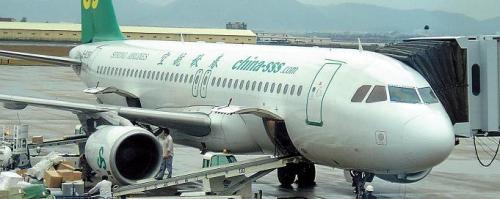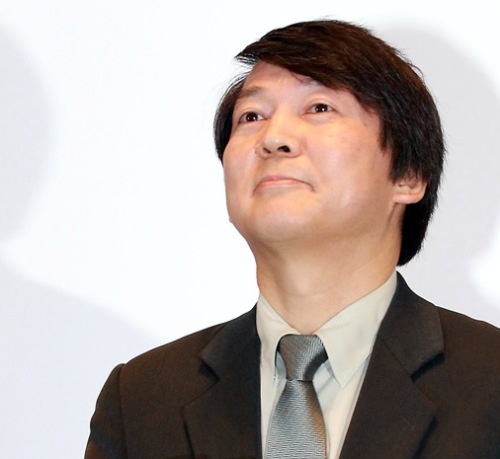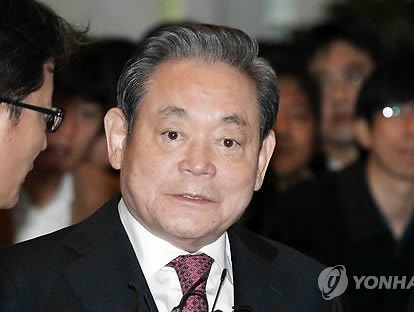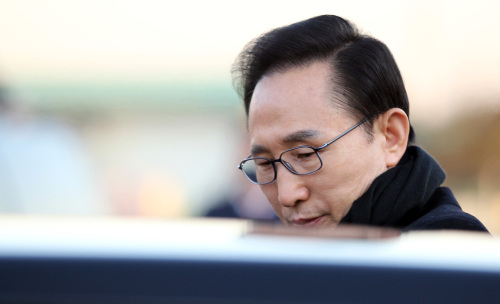Peach Aviation, AirAsia Japan, Jetstar Japan and Spring Airlines tapping Korean
market
Competition between Asia’s low-cost airlines is poised to heat up this year as carriers from Japan and China are lining up to launch new routes to Seoul, seeking to gain an upper hand in one of the world’s fastest growing aviation markets.
That will bring fresh challenges to Korea’s two full-service airlines, which are already being pummeled by volatile fuel prices, lower cargo demand and a weaker local currency. Though they own or hold stakes in budget carriers, Korean Air and Asiana Airlines will inevitably see their slices shrivel in the aviation market, experts say.
More and more budget-conscious tourists are willing to surrender some comfort in return for lower fares. The number of Koreans using low-cost airlines topped 10 million for the first time last year, up a staggering 32.5 percent from 2010, according to the Transport Ministry.
The combined market share of the country’s five low-cost airlines ― Jeju Air, Air Busan, Jin Air, Eastar Jet and T’way Air ― rose to 16.5 percent last year, up 3.3 percentage points. The five together control more than 41 percent of domestic traffic.
The no-frills carriers operate 25 international itineraries. More than 1.8 million Koreans flew overseas with them last year, doubling their collective market share to 4.3 percent.
Yet that portion could reach 20 percent in the coming years, forecasts analyst Joo Ik-chan at Eugene Investment & Securities.
“It doesn’t have much impact on big players at this point because they fully dominate lucrative North American and European routes. But in the long term, budget carriers will bite into their stakes,” he says.
Newcomers
Tapping the Korean market are AirAsia Japan, Jetstar Japan and Peach Aviation from Japan as well as Spring Airlines of China. They are expected to offer cheaper tickets and more choices of destination than their Korean peers, officials say.
Peach, which is set up last year by All Nippon Airways, is set to launch daily flights between Incheon and Osaka in May. Its price-focused strategy surprised the Japanese aviation industry by setting the rates for domestic flights at a third of what its parent ANA charges.
“Although everything else is charged for, we guarantee that fares won’t disappoint you,” Kim Woo-geol, chief of Peach’s Seoul office, recently told a local travel magazine. The company is planning to introduce a promotional round-trip fare of 10,000 won ($8.90) to mark the inauguration of its latest route.
AirAsia Japan, a joint venture between ANA and AirAsia, is gearing up to fly from Tokyo to Incheon and Busan starting October. AirAsia X, the long-haul affiliate of Asia’s largest low-fare airline, began services between Kuala Lumpur and Seoul in August 2010.
Jetstar Japan, which is owned by Japan Airlines, Mitsubishi Corp. and Qantas Airways, aims to begin operations out of Tokyo in the second half, while Shanghai-based Spring Airlines is reportedly preparing to enter the Korean market by the end of this year.
“The recent inroads by foreign carriers, coupled with the robust performances of local ones, prove that there is clearly a market for budget travel,” says Martin Song, an analyst with Woori Investment & Securities.
“Despite persistently high jet fuel costs, air travel demand is improving, underpinning their business. Competition is unavoidable in such an up-and-coming market ― the thing is how to sustain growth.”
Attack and defense
To cope with stiff competition and ensure a larger source of revenue, Korea’s five low-cost airlines are also reinforcing their international networks.
Jeju Air, the country’s largest budget carrier, has two new Japanese routes slated for March ― to Nagoya and Fukuoka ― and one to Ho Chi Minh in Vietnam for April. That will raise the number of its international destinations to 14 from 11, also including Hong Kong, Bangkok and Osaka.
The company currently runs eight units of Boeing 737 aircraft and will add four to its fleet this year. It targets 360 billion won in sales, up 40 percent from last year.
“We anticipate fierce competition in the aviation markets surrounding Korea and Japan this year with the launch of Peach here,” a Jeju Air official says. “We’ll make utmost efforts to firm up our position as a leading LCC in Northeast Asia.”
Air Busan, whose largest stakeholder is Asiana Airlines, is planning to initiate a flight next month to Qingdao in China. It and Jin Air, which is set up in 2008 by Korean Air, each have six international destinations including Shanghai and Tokyo. Eastar flies to Tokyo, Sapporo and Kota Kinabalu, while T’way launched its maiden flight to Bangkok in October.
Korean Air and Asiana, meanwhile, will stay focused on long-haul flights and freight operations.
Korean Air, the world’s second-largest cargo carrier, unveiled its new Boeing 747 and 777 freighters on Tuesday, which it says consume less fuel, make less noise and cut emissions by up to 17 percent compared with the existing ones. Freight accounts for about 30 percent of the company’s sales.
The flag carrier also saw a 41 percent increase in the number of business-class passengers on long-haul routes in the last quarter of 2011.
Asiana’s upcoming new planes will enable daily services of its all North American routes this year. Although its cargo volume remained flat, its passenger revenues rose almost 14 percent in that quarter, driving a 45.4 percent surge in operating profit to 54.9 billion won.
Lingering concerns
Some skeptics worry that overheated competition could erode the profitability. Rumors are swirling that two of the five budget carriers are looking to put themselves up for sale due to mushrooming losses.
“Japanese and Chinese airlines will likely focus on routes to metropolises such as Osaka and Shanghai as Korean carriers do currently. That will saturate the market and all of them in turn might end up eating away each other rather than making profits,” an industry official says, declining to be named.
Rep. Chung Hee-soo of the ruling Saenuri Party also points out that budget carriers are more prone to accidents, flight cancellations and delays owing to their hectic schedules.
“LCCs have small fleets so they keep on running the same planes over and over again,” he says. “That may cause a lack of proper maintenance and eventually a major accident.”
The number of trips by a single jet averages at 6.5 per day for Korean budget airlines, versus Korean Air’s 3.6 and Asiana’s 4.6, according to the Transport Ministry. Air Busan had the highest figure of 8.1.
Competition between Asia’s low-cost airlines is poised to heat up this year as carriers from Japan and China are lining up to launch new routes to Seoul, seeking to gain an upper hand in one of the world’s fastest growing aviation markets.
That will bring fresh challenges to Korea’s two full-service airlines, which are already being pummeled by volatile fuel prices, lower cargo demand and a weaker local currency. Though they own or hold stakes in budget carriers, Korean Air and Asiana Airlines will inevitably see their slices shrivel in the aviation market, experts say.
More and more budget-conscious tourists are willing to surrender some comfort in return for lower fares. The number of Koreans using low-cost airlines topped 10 million for the first time last year, up a staggering 32.5 percent from 2010, according to the Transport Ministry.
The combined market share of the country’s five low-cost airlines ― Jeju Air, Air Busan, Jin Air, Eastar Jet and T’way Air ― rose to 16.5 percent last year, up 3.3 percentage points. The five together control more than 41 percent of domestic traffic.
The no-frills carriers operate 25 international itineraries. More than 1.8 million Koreans flew overseas with them last year, doubling their collective market share to 4.3 percent.
Yet that portion could reach 20 percent in the coming years, forecasts analyst Joo Ik-chan at Eugene Investment & Securities.
“It doesn’t have much impact on big players at this point because they fully dominate lucrative North American and European routes. But in the long term, budget carriers will bite into their stakes,” he says.
Newcomers
Tapping the Korean market are AirAsia Japan, Jetstar Japan and Peach Aviation from Japan as well as Spring Airlines of China. They are expected to offer cheaper tickets and more choices of destination than their Korean peers, officials say.
Peach, which is set up last year by All Nippon Airways, is set to launch daily flights between Incheon and Osaka in May. Its price-focused strategy surprised the Japanese aviation industry by setting the rates for domestic flights at a third of what its parent ANA charges.
 |
| Japan’s Peach Aviation |
 |
| China’s Spring Airlines |
“Although everything else is charged for, we guarantee that fares won’t disappoint you,” Kim Woo-geol, chief of Peach’s Seoul office, recently told a local travel magazine. The company is planning to introduce a promotional round-trip fare of 10,000 won ($8.90) to mark the inauguration of its latest route.
AirAsia Japan, a joint venture between ANA and AirAsia, is gearing up to fly from Tokyo to Incheon and Busan starting October. AirAsia X, the long-haul affiliate of Asia’s largest low-fare airline, began services between Kuala Lumpur and Seoul in August 2010.
Jetstar Japan, which is owned by Japan Airlines, Mitsubishi Corp. and Qantas Airways, aims to begin operations out of Tokyo in the second half, while Shanghai-based Spring Airlines is reportedly preparing to enter the Korean market by the end of this year.
“The recent inroads by foreign carriers, coupled with the robust performances of local ones, prove that there is clearly a market for budget travel,” says Martin Song, an analyst with Woori Investment & Securities.
“Despite persistently high jet fuel costs, air travel demand is improving, underpinning their business. Competition is unavoidable in such an up-and-coming market ― the thing is how to sustain growth.”
Attack and defense
To cope with stiff competition and ensure a larger source of revenue, Korea’s five low-cost airlines are also reinforcing their international networks.
Jeju Air, the country’s largest budget carrier, has two new Japanese routes slated for March ― to Nagoya and Fukuoka ― and one to Ho Chi Minh in Vietnam for April. That will raise the number of its international destinations to 14 from 11, also including Hong Kong, Bangkok and Osaka.
The company currently runs eight units of Boeing 737 aircraft and will add four to its fleet this year. It targets 360 billion won in sales, up 40 percent from last year.
“We anticipate fierce competition in the aviation markets surrounding Korea and Japan this year with the launch of Peach here,” a Jeju Air official says. “We’ll make utmost efforts to firm up our position as a leading LCC in Northeast Asia.”
Air Busan, whose largest stakeholder is Asiana Airlines, is planning to initiate a flight next month to Qingdao in China. It and Jin Air, which is set up in 2008 by Korean Air, each have six international destinations including Shanghai and Tokyo. Eastar flies to Tokyo, Sapporo and Kota Kinabalu, while T’way launched its maiden flight to Bangkok in October.
Korean Air and Asiana, meanwhile, will stay focused on long-haul flights and freight operations.
Korean Air, the world’s second-largest cargo carrier, unveiled its new Boeing 747 and 777 freighters on Tuesday, which it says consume less fuel, make less noise and cut emissions by up to 17 percent compared with the existing ones. Freight accounts for about 30 percent of the company’s sales.
The flag carrier also saw a 41 percent increase in the number of business-class passengers on long-haul routes in the last quarter of 2011.
Asiana’s upcoming new planes will enable daily services of its all North American routes this year. Although its cargo volume remained flat, its passenger revenues rose almost 14 percent in that quarter, driving a 45.4 percent surge in operating profit to 54.9 billion won.
Lingering concerns
Some skeptics worry that overheated competition could erode the profitability. Rumors are swirling that two of the five budget carriers are looking to put themselves up for sale due to mushrooming losses.
“Japanese and Chinese airlines will likely focus on routes to metropolises such as Osaka and Shanghai as Korean carriers do currently. That will saturate the market and all of them in turn might end up eating away each other rather than making profits,” an industry official says, declining to be named.
Rep. Chung Hee-soo of the ruling Saenuri Party also points out that budget carriers are more prone to accidents, flight cancellations and delays owing to their hectic schedules.
“LCCs have small fleets so they keep on running the same planes over and over again,” he says. “That may cause a lack of proper maintenance and eventually a major accident.”
The number of trips by a single jet averages at 6.5 per day for Korean budget airlines, versus Korean Air’s 3.6 and Asiana’s 4.6, according to the Transport Ministry. Air Busan had the highest figure of 8.1.














